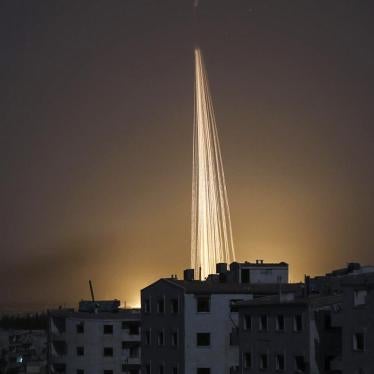Dead Sea, Jordan
Thank you, Mr. President.
The Landmine Monitor executive summary and individual country reports are full of statistics about mines retained under Article 3. I will not give a recitation of those today, but allow me to highlight one.
By our count, 70 States Parties are retaining about 233,000 antipersonnel mines. That does not sound like a comprehensive ban on antipersonnel mines. While the treaty does of course allow retention of mines for training and development purposes, the fact is that nearly nine years after entry into force, surprisingly little is known about what many states are doing with all those antipersonnel mines. What we do know leads us to conclude that there appears to be widespread abuse of the exception in Article 3. It appears that many States Parties are retaining more antipersonnel mines than (in the words of the treaty) "absolutely necessary" and are not using mines retained under Article 3 for the permitted purposes.
States Parties need to take a much closer look at how Article 3 is being implemented, and to carefully consider if there are compliance matters to address. At a minimum, the Standing Committee on General Status and Operation of the Convention should (1) encourage a wider and more detailed exchange of information about what states are doing with their retained mines, and (2) engage in a more technical discussion examining the validity of various rationales put forward for retaining mines.
Our concerns about improper implementation and possible compliance issues are based on the following observations:
- Some States Parties have yet to use their retained mines for either training or development purposes; the mines are simply sitting in storage.
- Some States Parties are retaining mines when they do not have active demining, training, or development programs.
- Many States Parties have not provided sufficient detail and justification for their requirement to retain any mines, or a certain number of mines.
- Many States Parties have not undertaken a detailed process to determine the minimum number of mines needed.
- Some States Parties maintain that they are using retained mines for training or development purposes, but the number of retained mines does not change from year to year, indicating none of those mines are consumed (destroyed), contrary to the experience of many other states engaged in those activities.
- At least 44 States Parties did not report consuming any of their retained mines in 2006; 33 States Parties have not consumed any for the past two or more years, including 18 that have not reported consuming any mines for permitted purposes since entry-into-force. Few of these states have explained why mines are not being consumed.
- Many States Parties provide inadequate and inconsistent information about retained mines in their annual Article 7 transparency reports.
- Too few States Parties are using the expanded Article 7 Form D agreed to at the Sixth Meeting of States Parties to facilitate reporting on the intended purposes and actual uses of retained mines. Only a dozen or so states used the new form in 2006 and again in 2007.
Mr. President, unless a State Party is clearly retaining the minimum number of antipersonnel mines, is actively utilizing the mines for the permitted purposes, and is being fully transparent about the process, there may rightly be concerns that the mines are in essence still being stockpiled and could be used for war fighting purposes.
There remain serious questions about the rationales typically given for retaining antipersonnel mines. Some states say that "live mines" are necessary for training in manual clearance with metal detectors, but operators have pointed out that an option is to have the fuze buried on top of the mine body for signal response. Some states say "live mines" are required for training mine detecting dogs, but operators have pointed out that fuze assembly is not required for such training. Some states have cited participation in peacekeeping operations as a justification for retaining mines. However, according to UN officials, only three UN-managed programs have a mine clearance capacity compliant with International Mine Action Standards and require training (Lebanon, Eritrea, and Sudan). Other states engaged in demining as part of peacekeeping operations do not retain mines (for example, Austria, New Zealand, and Norway).
The ICBL continues to question the need for live antipersonnel mines for training and calls on States Parties to continue to evaluate the necessity for this exception, especially for those states that have not used mines for permitted purposes in prior years.
The ICBL urges all States Parties that retain mines under Article 3 to adopt the following best practices in order to ensure that the exception granted for retaining antipersonnel mines is not being misused.
- Use the expanded format of Form D for annual transparency reporting.
- Declare the intended purposes and actual uses of antipersonnel mines retained under Article 3 in statements made at Meetings of States Parties, intersessional Standing Committee meetings, or in communications with Landmine Monitor.
- Carry out a detailed evaluation of the precise number of antipersonnel mines needed for specific activities. Provide the justification for why and the method how a particular number was arrived at.
- Regularly re-evaluate the number of retained mines to ensure that it is the minimum number absolutely necessary for permitted purposes.
- Reduce the number of retained mines to a level consistent with an annual requirement for live mines actually being used in training and research activities.
- Explore available alternatives to using live mines for training and research activities.
- Do not retain any antipersonnel mines as a contingency for possible future needs, as opposed to demonstrated current needs.
Mr. President, this is a matter that deserves serious attention by all States Parties. It is also one that is relevant to discussions on the future cluster munition treaty.
Thank you.






